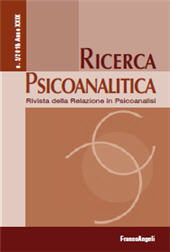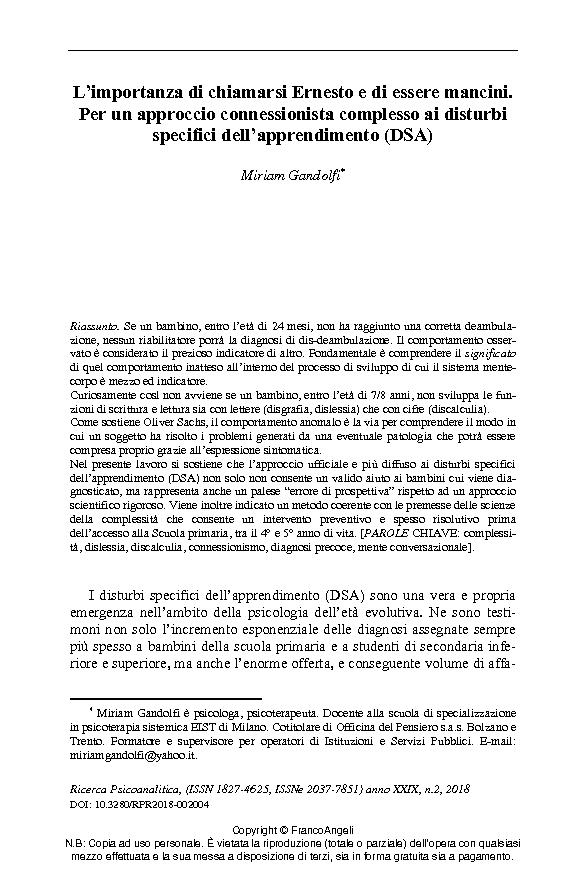L'importanza di chiamarsi Ernesto e di essere mancini : per un approccio connessionista complesso ai disturbi specifici dell'apprendimento (DSA)
53-73 p.
Se un bambino, entro l'età di 24 mesi, non ha raggiunto una corretta deambulazione, nessun riabilitatore porrà la diagnosi di dis-deambulazione. Il comportamento osservato è considerato il prezioso indicatore di altro. Fondamentale è comprendere il significato di quel comportamento inatteso all'interno del processo di sviluppo di cui il sistema mente-corpo è mezzo ed indicatore. Curiosamente così non avviene se un bambino, entro l'età di 7/8 anni, non sviluppa le funzioni di scrittura e lettura sia con lettere (disgrafia, dislessia) che con cifre (discalculia). Come sostiene Oliver Sachs, il comportamento anomalo è la via per comprendere il modo in cui un soggetto ha risolto i problemi generati da una eventuale patologia che potrà essere compresa proprio grazie all'espressione sintomatica.
Nel presente lavoro si sostiene che l'approccio ufficiale e più diffuso ai disturbi specifici dell'apprendimento (DSA) non solo non consente un valido aiuto ai bambini cui viene diagnosticato, ma rappresenta anche un palese "errore di prospettiva" rispetto ad un approccio scientifico rigoroso. Viene inoltre indicato un metodo coerente con le premesse delle scienze della complessità che consente un intervento preventivo e spesso risolutivo prima dell'accesso alla Scuola primaria, tra il 4° e 5° anno di vita. [Testo dell'editore].
If a 2 year old child has not achieved a proper level of ambulation, no rehabilitator would diagnose dys-ambulation. The observed behaviour is considered a precious indicator of something more. The essential aspect is to understand the meaning of that unexpected behaviour within the process of childhood development whose one indicator is the body-mind system. Oddly enough this doesn't happen if a child, by the age of 7/8 years has not developed writing and reading skills both with characters (dysgraphia, dyslexia) and numbers (dyscalculia). As argued by Oliver Sacks, an anomalous behaviour is the path to under-standing how a subject has solved the problems generated by a possible pathology that may be understood exactly by means of this symptomatic expression. In this article we discuss how the official and most widespread approach regarding specific learning disabilities (SLD),
not only does not provide efficient help for children with an SLD diagnosis, but represents also a clear "perspective mistake" in regard to a rigorous scientific approach. Furthermore we indicate a method that is consistent with the premises of the sciences of complexity and allows a preventive, and often resolutive, intervention before entering primary school, between the fourth and fifth year of life [Publishers' text].
-
Artikel aus derselben Ausgabe (einzeln erhältlich)
-
Informationen
ISSN: 2037-7851
THEMENBEREICHE
KEYWORDS
- Complessità, dislessia, discalculia, connessionismo, diagnosi precoce, mente conversazionale
- Complexity, dyslexia, dyscalculia, connectionism, early diagnosis, conversational mind



